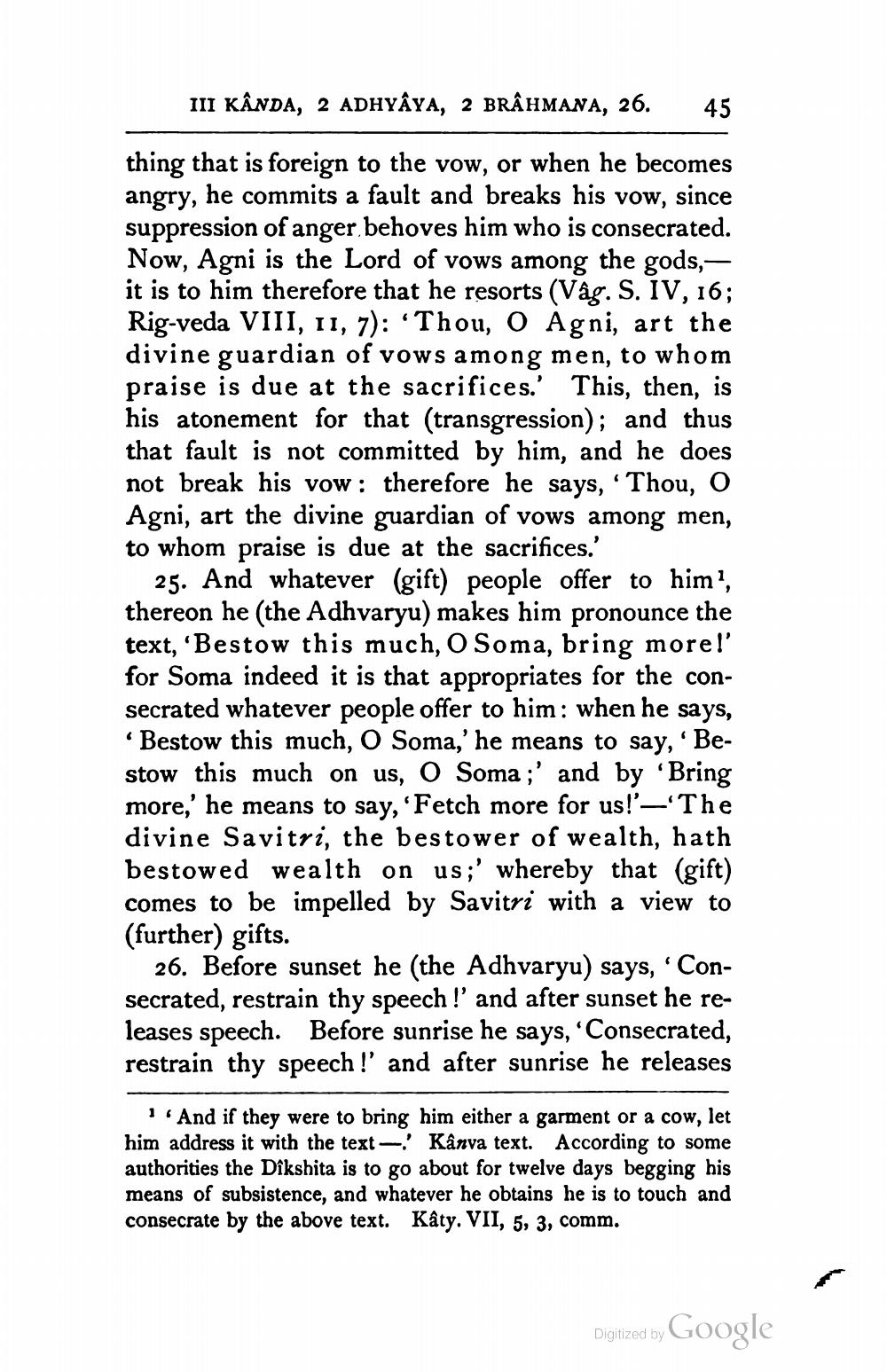________________
III KÂNDA, 2 ADHYAYA, 2 BRAHMANA, 26.
45
thing that is foreign to the vow, or when he becomes angry, he commits a fault and breaks his vow, since suppression of anger behoves him who is consecrated. Now, Agni is the Lord of vows among the gods, — it is to him therefore that he resorts (Vág. S. IV, 16; Rig-veda VIII, 11, 7): 'Thou, O Agni, art the divine guardian of vows among men, to whom praise is due at the sacrifices.' This, then, is his atonement for that (transgression); and thus that fault is not committed by him, and he does not break his vow: therefore he says, 'Thou, O Agni, art the divine guardian of vows among men, to whom praise is due at the sacrifices.'
25. And whatever (gift) people offer to him", thereon he (the Adhvaryu) makes him pronounce the text, 'Bestow this much, O Soma, bring more!' for Soma indeed it is that appropriates for the consecrated whatever people offer to him: when he says,
Bestow this much, O Soma,' he means to say, 'Bestow this much on us, O Soma ;' and by Bring more,' he means to say, 'Fetch more for us!'—'The divine Savitri, the bestower of wealth, hath bestowed wealth on us;' whereby that (gift) comes to be impelled by Savitri with a view to (further) gifts.
26. Before sunset he (the Adhvaryu) says, 'Consecrated, restrain thy speech!' and after sunset he releases speech. Before sunrise he says, “Consecrated, restrain thy speech !' and after sunrise he releases
1 And if they were to bring him either a garment or a cow, let him address it with the text - Kanva text. According to some authorities the Dîkshita is to go about for twelve days begging his means of subsistence, and whatever he obtains he is to touch and consecrate by the above text. Kâty. VII, 5, 3, comm.
Digitized by Google




